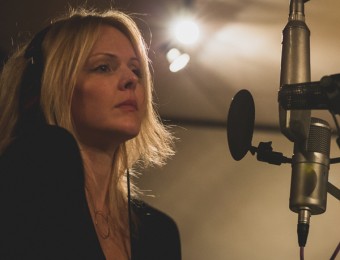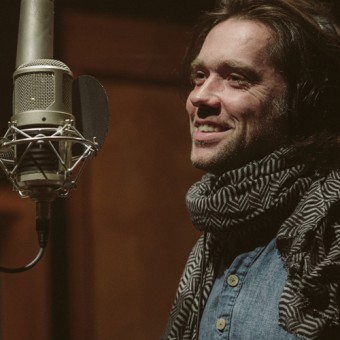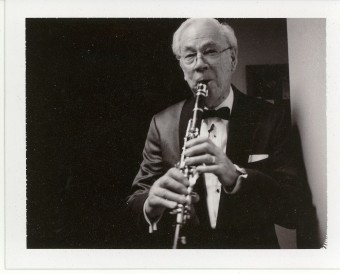It’s the second to last installment of our song-by-song commentary on Get Happy, written by the ever exuberant Thomas M. Lauderdale! This week Thomas talks about Storm Large’s sultry version of “Sway”, his own confusion about the meaning behind “Kitty come home”, and working with the incomparable Norman Leyden on “What’ll I do?”. Now, let’s get to it!

Track 11: “Sway”
Sway is another one of those songs that has been recorded numerous times. Our version — sung by Storm Large — has the strut of the Rosemary Clooney version crossed with the swagger of Dean Martin’s rendition and the purring sexiness of Julie London’s.
Track 12: “Kitty come home”
In 1996, Gus Van Sant, the filmmaker who lives in Portland and made My Own Private Idaho, Drugstore Cowboy, Goodwill Hunting, and Milk called up and said, “There’s a guy named Rufus Wainwright who’s coming to town for his first concert in Portland, do you want to come?” I went and I met Rufus Wainwright. He played at Berbati’s Pan just down the street. We became friends and whenever he came to town I would throw parties for him and introduce him to cute boys. It was very, very fun. In recent years he married. Jörn Weisbrodt. Jörn is very tall, German and wonderful. The two of them together are fantastic. And Rufus is a total genius.

I’ve always loved the song composed by Rufus’s aunt Anna McGarrigle called “Kitty Come Home.” Anna and her sister Kate, Rufus’s mother, recorded many albums in the 1970s and 1980s. “Kitty Come Home” was released in 1977. I used to think that that song was a plea to a lost kitty cat to come home. About 10 years ago Rufus pulled me aside and explained that Kitty was actually the nickname of his mother, Kate. Anna wrote the song as a plea to Kate to leave her husband Loudon Wainwright and bring her children, Martha and Rufus, back to Canada. A far cry from a song about a lost feline.
Last year I said to Rufus, “I would understand if you say no to this, but would you consider recording ‘Kitty Come Home’ with us?” I felt a bit apprehensive asking because it’s really his turf. It’s his family’s story, it’s his mother’s story. But surprisingly and amazingly, he said yes. Because I love the song so much, and because I have so much respect for Rufus, I worked really hard to record a beautiful, reverential version of that song. Hopefully it has empathy and gloriousness simultaneously. There are several Oregon Symphony musicians who appear on our recording. Kyle Mustain on the English Horn, Karen Wagner on the oboe, Micah Wilkinson on trumpet, and our brass section. And the actual great grandchildren of Maria and Georg von Trapp — Sofia, Melanie, Amanda, and August, are our backing chorus. I think Rufus has never sounded better. It’s just a beautiful recording. For me, it’s another emotional cornerstone of the entire album.
Track 13: “What’ll I do?”
When I was 13 years old, I won the Mrs. Henry L. Corbett Piano Competition. The adjudicator was Norman Leyden, the associate conductor of the Oregon Symphony. That began my long association with the Oregon Symphony. I am now a board member. Through the years I have played with them several times. After college, I was hired by Norman Leyden to come back to Portland to play George Gershwin’s “Rhapsody in Blue” and later “Concerto in F”, also by Gershwin. Every couple of years I play a concerto with the orchestra to keep my chops up. I go back to piano lessons with my teacher Sylvia Killman and try to avoid sliding into Liberace-land.

Norman Leyden gave the band our first opportunity to play with an orchestra. It was a total disaster. But, still believing in us, he hired us for the following year. We got our act together, and that began our long association with symphony orchestras around the country. Without symphony orchestras (and NPR and Starbucks), the band would not have a career in the United States at all. We’ve played with 40 different orchestras across the country and it has been a total blessing. It’s all really thanks to Norman Leyden.
Norman Leyden was Glenn Miller’s last arranger. He later went on to become Arthur Godfrey’s music director as well as the music director for the Jackie Gleason Show. He recorded with Sarah Vaughan, Tony Bennett, Rosemary Clooney, the Four Lads, George Beverly Shea, Howdy Doody, and Disney. He also wrote the theme to The $64,000 Question. He is a magnificent arranger. There are thousands of arrangements that he has done through the years that are in his basement.
In recent years, the band has been able to give back to him. He recorded the clarinet part on “Hang on little tomato” in 2003. Nobody has that tone these days. And there is no replacing him. Last December he made his Carnegie Hall debut with us at age 95. In July 2013, he made his Hollywood Bowl debut with us. He got standing ovations every night.
We were inspired to make one final recording with him, of the lovely Irving Berlin classic, “What’ll I do?” China gives us a beautiful, nostalgic vocal performance, and our arranger Steve Taylor based the orchestration on one we loved from the soundtrack of the 1974 film The Great Gatsby.
Come back next week for the final installation of “Get Happy”: The Stories Behind the Songs. See you then!





